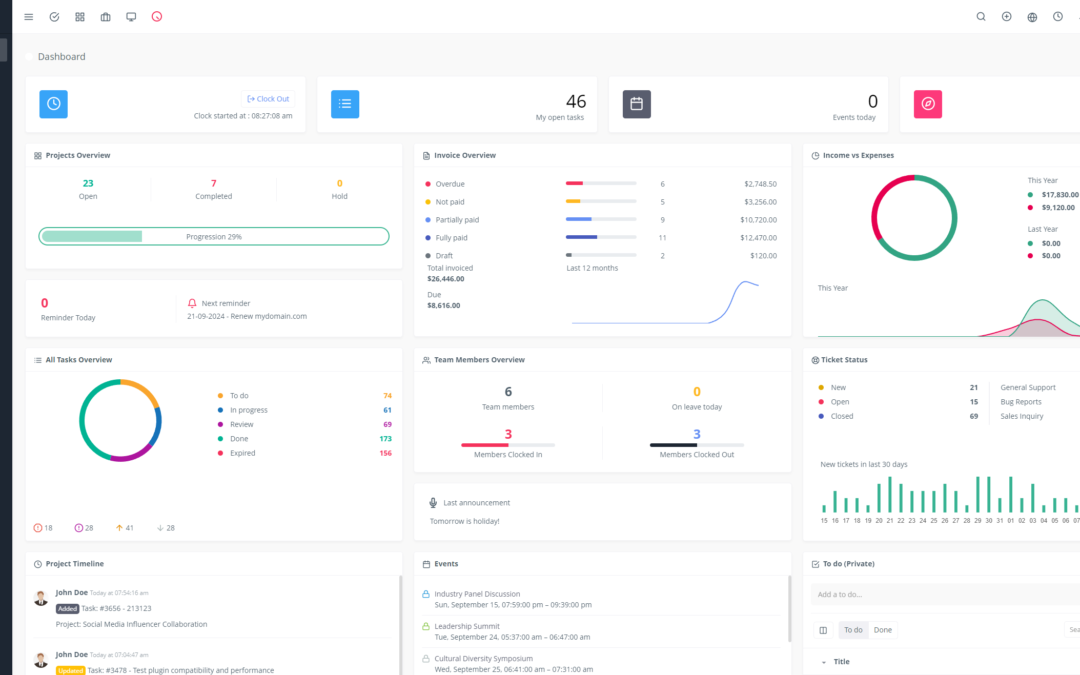Yoneos CRM is a powerful and comprehensive solution for managing your customer relationships. Its APIs provide increased flexibility by allowing Yoneos CRM to be integrated with other applications and systems. But the security of these APIs is just as important as their functionality.
The Importance of API Security
APIs, by their very nature, expose sensitive data and functionality. Therefore, it is crucial to implement robust security measures to protect your data and system from unauthorized access, attacks, and breaches.
Authentication Methods for Yoneos CRM APIs
Yoneos CRM offers different authentication methods for its APIs, enabling access control and ensuring data security.
1. Token-Based Authentication (JWT)
How it works: A JWT (JSON Web Token) is a digital token that contains information about the user and is cryptographically signed.
Advantages: JWTs are compact, self-contained, and can be easily verified.
Security: JWTs are secure due to the cryptographic signature and the validation of the token before accessing data.
2. API Key-Based Authentication
How it works: API Keys are unique identifiers that are used to authenticate API requests.
Advantages: Simplicity of use and flexibility for integration.
Security: API Keys must be kept secret and protected from unauthorized access.
Role and Permission Management
1. Role-Based Access Control (RBAC)
How it works: RBAC assigns specific roles to users, each role defining the access permissions to resources and functionalities.
Advantages: Simplifies permission management and ensures that users only have access to the data and features they need.
2. Resource-Based Access Control (RBAC)
How it works: RBAC controls access to specific resources based on the user’s role.
Advantages: Allows for the definition of precise and granular access rules.
JWT and API Key Verification
Yoneos CRM uses robust mechanisms to verify JWTs and API Keys to ensure the authenticity and validity of API requests.
Sensitive Information Security
Encryption of transmitted data: Sensitive data is encrypted during transmission between the client and the server.
Security protocols (TLS/SSL): Yoneos CRM uses industry-standard security protocols (TLS/SSL) to secure communications.
Error and Exception Handling
API activity logging: API actions and errors are recorded for monitoring and debugging.
Protection Against Attacks
Protection against SQL injection attacks: Yoneos CRM uses SQL injection prevention techniques to prevent attackers from accessing or modifying sensitive data.
Protection against XSS attacks: Measures are in place to prevent XSS attacks, which aim to inject malicious code into the user’s browser.
Protection against DDoS attacks: Yoneos CRM incorporates DDoS attack protection mechanisms to mitigate high-volume attacks from multiple sources.
Compliance with Security Standards
Yoneos CRM is committed to adhering to the latest and most rigorous industry security standards.
Best Practices for Securing Yoneos CRM APIs
Use strong authentication methods: JWTs and API Keys with strict role and permission management.
Protect sensitive information: Encrypt sensitive data and use security protocols such as TLS/SSL.
Monitor API activity: Log actions and errors for threat detection and debugging.
Regularly update systems: Apply security updates to patch vulnerabilities and potential flaws.
Tips for Developers Using Yoneos CRM APIs
Understand security requirements: Familiarize yourself with Yoneos CRM’s security policies and best practices.
Use secure development tools: Utilize security tools and libraries for application development.
Thoroughly test applications:* Perform penetration testing and security audits to identify and fix vulnerabilities.
By using Yoneos CRM APIs securely, you can take advantage of all of Yoneos CRM’s features while protecting your data and system.

